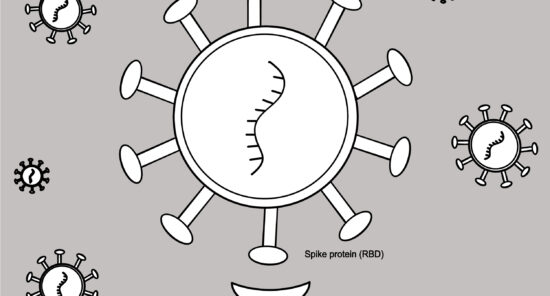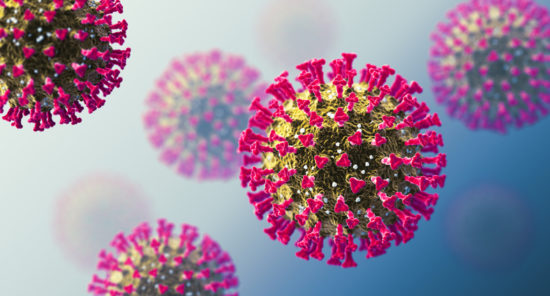Credit: Original article published here.Virax Biolabs, is a company developing a game-changing immunology platform based around T-Cell testing called Virax Immune. The recent pandemic and ongoing ‘tripledemic’ have made the public more aware of viral threats while raising curiosity of one’s own susceptibility to these threats. Virax Immune is a proprietary T cell testing platform to determine whether an individual will be able to mount a robust response to an infection. T cell tests are more informative than antibody and antigen testing as T cells provide long-term immunity to pathogenic threats. With a better understanding of immune status and consultation of a physician, patients will be equipped with information to make personalized proactive and protective decisions rather than a one-size-fits-all and reactionary approach that was evident in the global management of Covid-19. DocWire News spoke with with Tomasz George, Chief Scientific Officer at Virax Labs, to learn more about this innovaive company and its platform.
Credit: Original article published here.As part of an ongoing adaptive platform trial, investigators evaluated if initiating angiotensin-converting enzyme (ACE) inhibitors or angiotensin receptor blockers (ARB) improved outcomes in patients hospitalized with COVID-19, citing the theory that overactivation of the renin-angiotensin system (RAS) potentially drives worse outcomes. However, ACE inhibitor or ARB therapy did not improve, and even likely worsened, outcomes in critically-ill patients hospitalized for COVID-19, according to the writing committee. Given the safety risks, the trial was terminated early and findings were not complete for the non-critically-ill and combined ARB and DMX-200 treatment subgroups. Data for this segment of the overarching REMAP-CAP study were presented in JAMA. RAS Inhibitors Reduce COVID-19 Survival Between March 2021 and February, 2022, the trial randomized 721 critically-ill and 58 non-critically-ill hospitalized adults with COVID-19 to receive either ACE inhibitor (n=257), ARB (n=248), ARB plus DMX-200 (n=10), or control (n=264). By the time of enrollment discontinuation, 679 critically-ill patients with COVID-19 (35.2% female; median years of age, 56) were eligible for final analysis: 231 in the ACE group, 217 in the ARB group, and 231 controls. The final follow-up was June, 2022. The primary end point was organ support-free days, a combination of hospital
Credit: Original article published here.While COVID-19 is recognized as a typical syndrome of acute respiratory illness, it can also affect multiple organ systems. Acute kidney injury (AKI) has been associated with both direct and indirect responses to infection with COVID-19; available evidence suggests that AKI related to COVID-19 is seen in more than 20% of hospitalized patients and more than half of patients admitted to the intensive care unit. Neha Jain, MD, and colleagues at Highland Hospital, Alameda Health System, Oakland, California, performed a retrospective chart review to examine the incidence of AKI, risk factors, and outcomes in patients with COVID-19 at their center. Results were reported during a poster session at the National Kidney Foundation Spring Clinical Meetings 2023 in a poster titled COVID-19-Related Acute Kidney Injury: Incidence, Risk Factors, and Outcomes in a County Hospital Cohort. The review included charts for all patients older than 18 years of age who were admitted to the center with a positive COVID-19 test between April 2020 and March 2021. Relevant clinical data were collected from electronic health records and then statistically analyzed. AKI was defined as an increase in serum creatinine ≥0.3 mg/dL from baseline during the hospitalization. The primary outcome
Credit: Original article published here.Hospitalizations due to coronavirus disease 2019 (COVID-19) persist despite available vaccines. In the phase 3 SPRINTER study, researchers evaluated the safety and efficacy of SNG001, a recombinant interferon (IFN)-β formulation delivered via nebulizer, in hospitalized patients with COVID-19 who required oxygen. In the study, published in ERJ Open Research, there was no evidence that SNG001 improved times to hospital discharge or to no limitations on activities; however, the lead author, Phillip Monk, noted that SNG001 had a favorable safety profile, and secondary end point findings suggested SNG001 may have prevented progression to severe COVID-19. Nebulized COVID-19 Treatment May Prevent Severe Disease The study enrolled 309 patients to SNG001 and 314 to placebo once daily alongside standard of care. The primary end point of the trial was recovery after receiving SNG001 or placebo, and key secondary end points included progression to severe disease or death, progression to intubation or death, and overall mortality. According to the report, the median time to hospital discharge was 7.0 days with SNG001 and 8.0 days with placebo (hazard ratio [HR], 1.06; 95% CI, 0.89-1.27; P=.51). Both groups had a recovery time to no limitation of activities of 25.0 days (HR, 1.02; 95% CI,
Credit: Original article published here.A new study finds that female sex, being over the age of 40, and being overweight are among the factors associated with post-COVID-19 condition, or Long COVID. The study also showed that being vaccinated significantly lowers the risk of Long COVID. findings were reported this week in JAMA Internal Medicine. The COVID-19 pandemic has appreciably increased morbidity and mortality worldwide. Its postviral symptoms – which include but are not limited to – dyspnea, headache, loss of smell and/or taste, and fatigue – have received many labels, but they are perhaps most commonly referred to as Long COVID. The World Health Organization defines Long COVID as post-acute COVID symptoms which persist 3 months post-infection with a duration of at least 2 months. Previous studies have assessed which individuals may be at a higher risk of Long COVID; however, as the researchers noted, these studies often had relatively few patients. In this large-scale meta-analysis, researchers assayed Medline and Embase databases to identify 41 articles consisting of 860,783 patients with the goal of discerning risk factors and/or predictors of Long COVID in adult (18 years and older) patients. The risk factors for Long COVID which were measured included included:
Credit: Original article published here.A study published in Arthritis & Rheumatology assessed the real-world use of treatment with anakinra in children with multisystem inflammatory syndrome (MIS-C). What Is MIS-C? MIS-C is a rare condition that can occur in children diagnosed with COVID-19, typically occurring 2 to 6 weeks after SARS-CoV-2 infection. This condition is characterized by inflammation of different internal and external body parts, such as the heart, lungs, kidneys, brain, skin, eyes, or gastrointestinal tract. Anakinra is an interleukin-1 receptor antagonist that is used for the treatment of rheumatoid arthritis and is under investigation for the treatment of MIS-C. A 2022 study in Frontiers in Pediatrics reported that anakinra was associated with clinical improvements and was safe for use in patients with MIS-C. Trends in MIS-C Treatment For this study in Arthritis & Rheumatology, the researchers sought to gather evidence regarding the real-world use and effectiveness of anakinra in patients with MIS-C. They conducted a retrospective cohort study using data from a US surveillance registry. Patients with MIS-C treated with anakinra or another immunomodulator between November 2020 and December 2021 were analyzed. In total, 1,516 cases from 44 sites were included. Patients were between ages 2 and 20 years.
Credit: Original article published here.A recent report shows a marked increase nationwide in people getting vaccines against life-threatening diseases at pharmacies compared to physician practices over the past two years—regardless of location, gender, or income. Produced independently by the IQVIA Institute for Human Data Science in partnership with the Global Healthy Living Foundation, this report demonstrates that pharmacies are increasingly becoming the go-to source for vaccines beyond COVID and flu. Net immunization rates improve when pharmacists are authorized to vaccinate, complimenting the efforts of physicians. However, despite this sunny outlook and the implications for reducing healthcare disparities, there is danger that gains could be lost. Why? Robert Popovian, PharmD, MS, Chief Science Policy Officer of Global Healthy Living Foundation spoke with DocWire News spoke about the findings, and to answer the aforementioned question.








